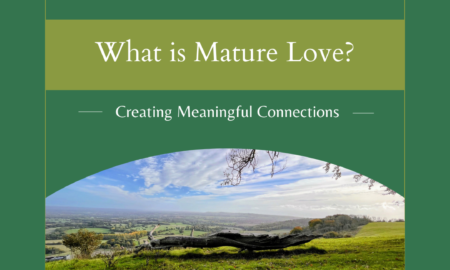The Early Clues To Adult Personality

As new parents we strive to see early clues in our baby’s temperament to see if we’re able to guess what they may be like as adults. But how far does this go and can we really tell what we might be like as adults from our baby ways?
There are so many facets to our personality it may initially seem impossible to say what we’re like as babies will shape us as adults. Altogether we are affected and shaped by our many experiences and relationships so if we are continually developing our personality can our baby personality dictate our adult personality? I believe it certainly informs it and here’s how…..
The Foundations of Personality Development
Picture this: your childhood as the canvas, experiences as the brushstrokes. They paint the masterpiece that is your adult personality. Transactional Analysis points to these early interactions as being the building blocks of who we become. A kid surrounded by love? Well, that might just lay the groundwork for a future filled with positivity and confidence.
Using Transactional Analysis To Understand Early Personality Traits
Personality development is a complex and fascinating journey that begins in the earliest stages of life. Understanding the roots of adult personality traits requires a look into the realm of Transactional Analysis (TA), a psychological theory developed by Eric Berne. TA explores how individuals’ ego states, namely the Parent, Adult, and Child ego states, influence our behaviours and relationships. Let’s delve into how these ego states shape adult personality traits from an early age.
The Parent Ego State: Nurturing and Conditioning
The Parent ego state represents the internalised messages and behaviours that we inherit from our caregivers. From infancy, children observe and internalise the behaviour of their parents or primary caregivers, which becomes the foundation of their Parent ego state. These early experiences shape the child’s value system, attitudes, and beliefs. For instance, if a child grows up in a strict household, they may develop a critical Parent ego state, leading to traits like authority, discipline, and perhaps judgment.
The Child Ego State: Emotions and Experiences
The Child ego state reflects our emotional and instinctual responses to life’s events, stemming from early experiences and memories. Children are naturally in touch with their Child ego state, expressing their emotions openly. How parents respond to these emotions influences the development of the Child ego state. A child who feels secure and loved is likely to grow into an adult who is emotionally resilient, creative, and spontaneous.
The Adult Ego State: Rational Thinking and Decision Making
The Adult ego state represents our capacity for objective, logical thinking and problem-solving. This ego state is relatively undeveloped in young children but gradually evolves as they learn to navigate the world. It becomes the rational, responsible, and independent aspect of the personality. A child’s exposure to critical thinking, problem-solving, and decision-making processes shapes their Adult ego state.
Shaping Personality Traits
From early on, the interaction between these ego states plays a significant role in shaping personality traits. For instance, a child who grows up in an environment where their Parent ego state is constantly criticised may develop a strong inner critic. This may lead to traits like perfectionism, anxiety, or low self-esteem.
Conversely, a child raised in an environment that nurtures their Child ego state, allowing them to express emotions freely and encouraging creativity, may grow up to be more emotionally balanced, creative, and open-minded as adults.
Furthermore, fostering a strong Adult ego state in a child involves encouraging critical thinking, problem-solving, and decision-making skills. Such an upbringing can lead to traits like adaptability, resilience, and independence in adulthood.
It is important to note that the interplay between these ego states is not static; they are dynamic and can evolve throughout one’s life. People have the capacity to adapt and change their ego states based on their experiences and self-awareness.
Environmental Factors and Adult Personality Traits
Now, let’s widen our lens beyond the family album. The world around us? Oh, it’s a big player in this personality game. Transactional Analysis is our trusty magnifying glass, helping us see how the outside world shapes our traits. Think of it as a dance between nature and nurture, crafting our unique adult personalities. Spoiler alert: it’s a pretty intricate choreography.
Unveiling Your Transactional Blueprint
Here we are, at the finish line. Think of understanding your adult personality as decoding a blueprint. Transactional Analysis concepts provide a valuable framework for understanding this process. The Parent, Child, and Adult ego states play a significant role in shaping personality traits, and the environment in which a child grows up greatly influences the development of these ego states.
Every interaction, every childhood memory – they’re all stitches in this unique tapestry. Transactional Analysis is a superhero sidekick, helping you unveil your personal narrative. So, embrace your quirks, learn from your past, and step into a future where you’re not just reading the blueprint – you’re the architect of your own unique personality!
Photo by TawnyNina
You may also be interested in...

Is Time Really a Healer?
Pop Culture and Loss I recently finished the Netflix series One Day. (Spoiler alert—if you haven’t seen it yet, you might want to pause here and come back once you…

What is Mature Love?
Creating Meaningful Connections Mature love, what is it? I’m not talking about being 80 years old and holding hands on a walk through the park here. I am talking about…

What Do We Mean by ‘The Self’ in Psychotherapy?
Understanding the Concept of the Self The concept of "the self" is central to psychotherapy, yet it can feel elusive and abstract. As therapists, we often talk about self-awareness, self-development,…

Your Life Story
Your Life Story One of the core theories of Transactional Analysis is the notion of a life script. Put simply, a life script is a pre-conscious life plan that determines…

Improve Your Mental Strength
Ever wondered why some people seem to bounce back effortlessly from life's curveballs while others struggle to regain their footing? The secret lies in mental strength – that intangible power…

Navigating Couples Therapy When Your Partner Isn’t on the Same Page
Deciding to seek couples psychotherapy can be a significant step toward improving your relationship. When you opt for the modality of Transactional Analysis (TA), it demonstrates your commitment to understanding…
Ready to Make a Change? Book an Initial Consultation Today
If you have any questions at all about therapy or would like to make an appointment, get in touch. I will usually be able to respond to you within 24 hours.
